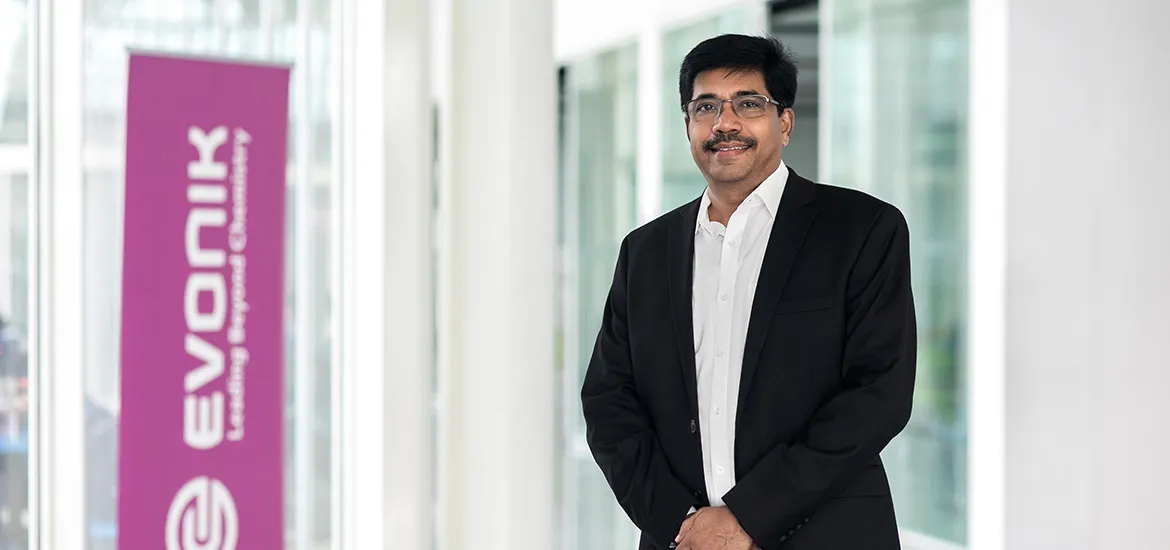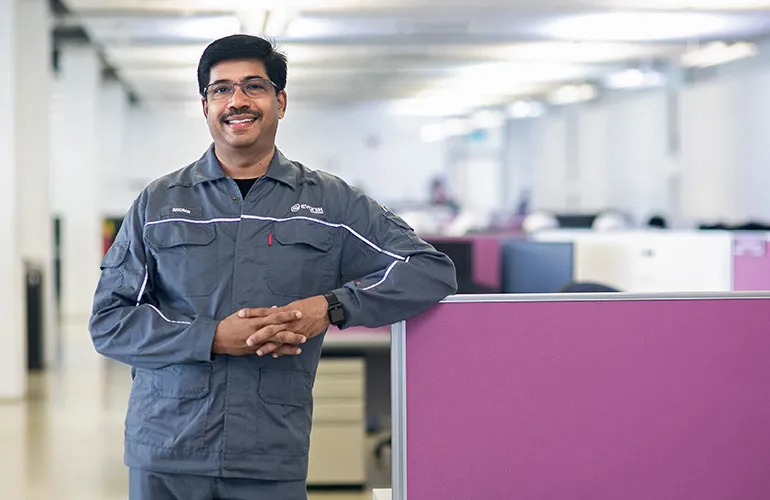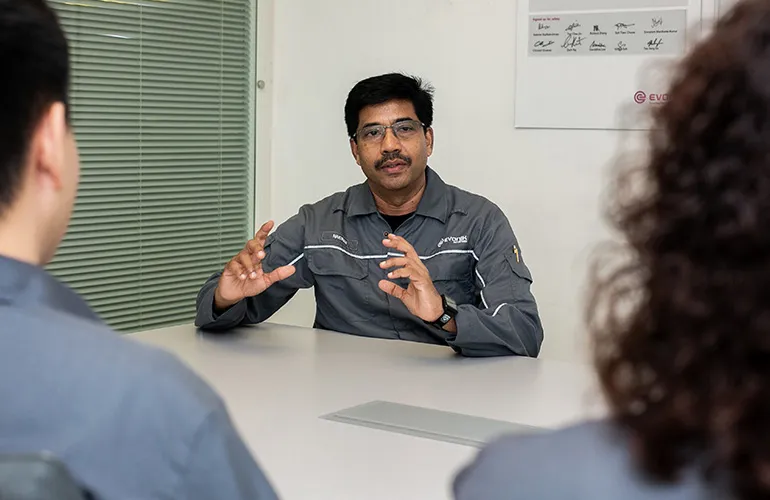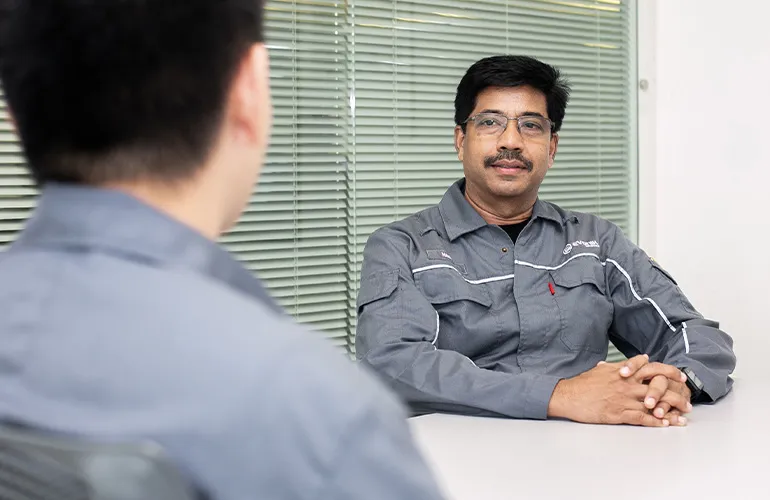Evonik Industries AG is a German specialty chemicals company that develops and manufactures a wide range of products used for nutrition, healthcare, and smart materials. The company entered Singapore in 1969 and has continued expanding, becoming one of the largest players in Singapore’s energy and chemicals industry, which makes up 3% of our GDP. Evonik now has over 700 employees in Singapore.
1. Tell us what methionine is in a nutshell, and what it's used for.
It might not be commonly known, but methionine is an essential amino acid used in animal feed. It improves the efficiency of feed and reduces the environmental impact of animal waste. MetAMINO, the product that Evonik makes on Jurong Island, is sold to industry customers in Asia and further afield.
2. What do you do at Evonik?
I’m the site manager and managing director of the Southeast Asian arm of Evonik. This means I oversee both the manufacturing and business operations of our methionine production complex in Singapore. On the manufacturing side, my focus is on ensuring that our two plants run safely, efficiently, and sustainably, producing high-quality methionine that meets the needs of our customers across Asia. On the business side, I’m responsible for managing the company’s finances, leading our local teams, and aligning our operations with Evonik’s global animal nutrition strategy, which emphasises efficient feed solutions, sustainable production and global supply reliability.










